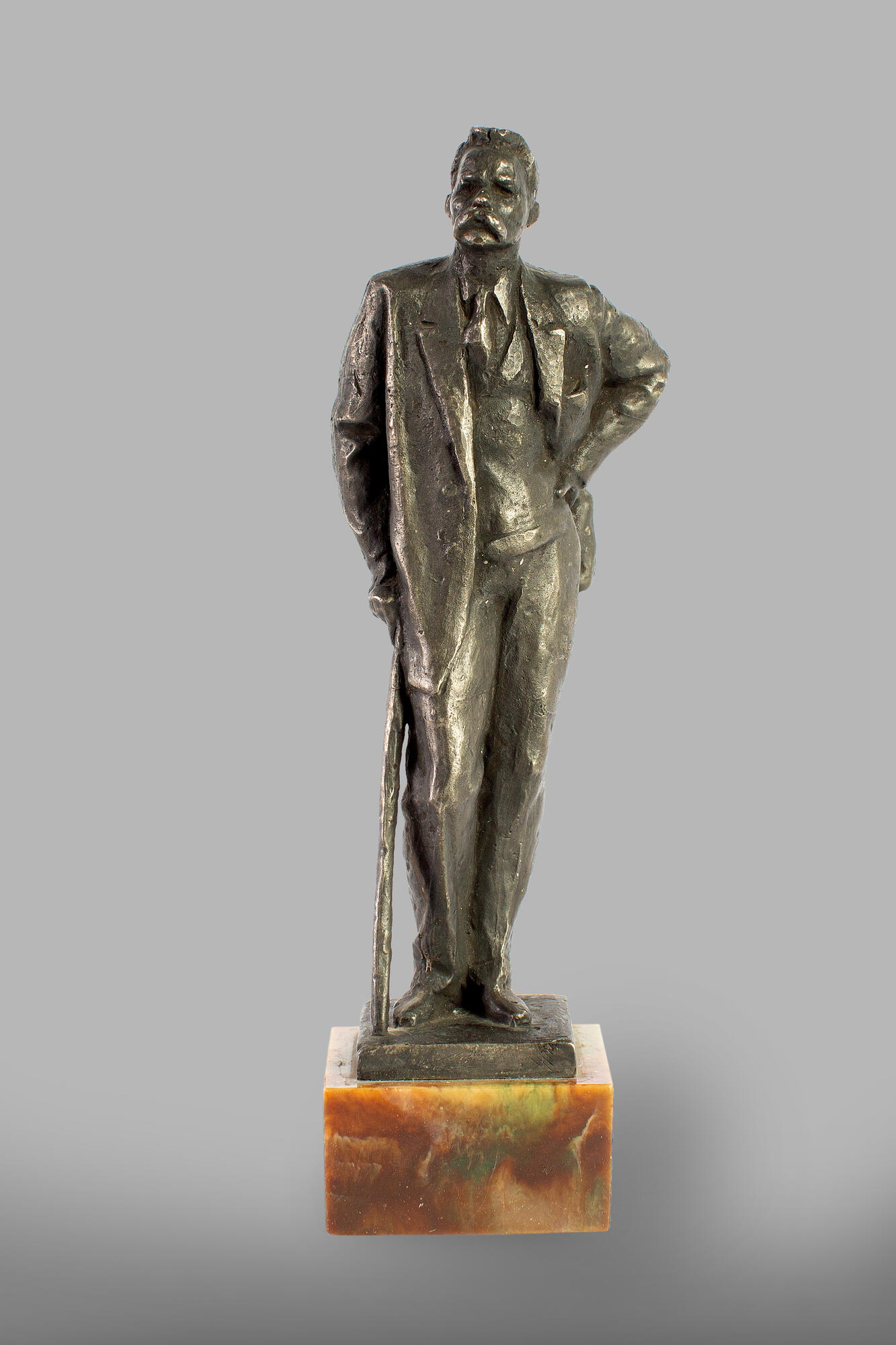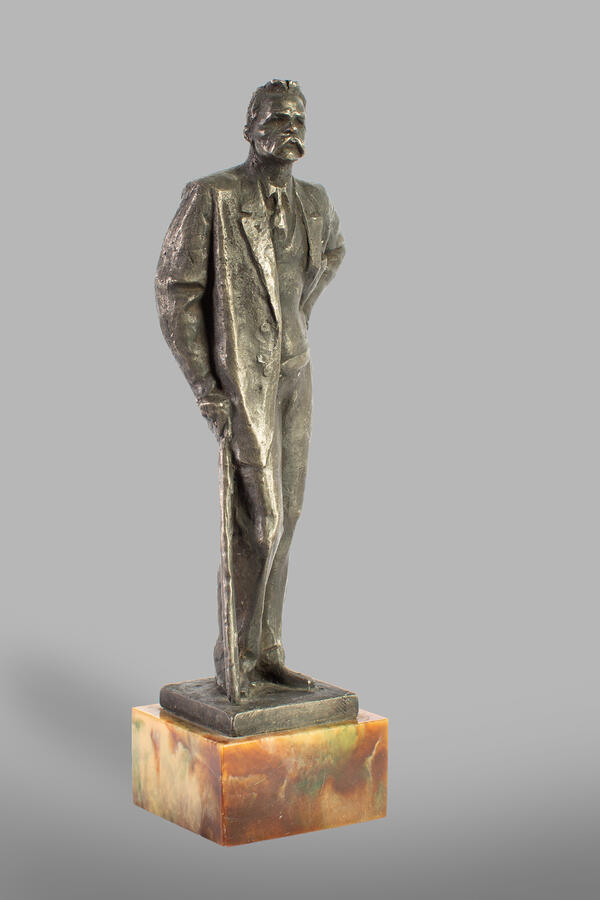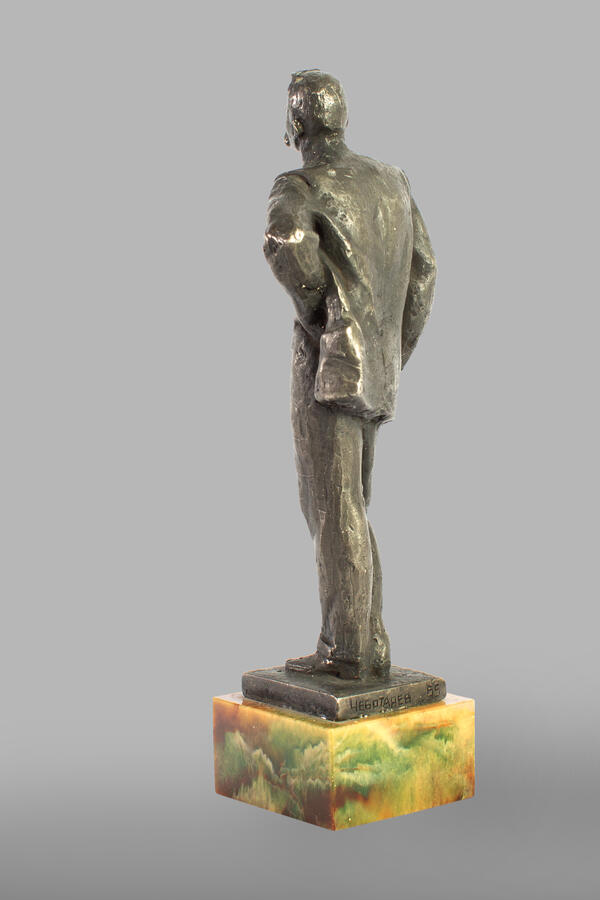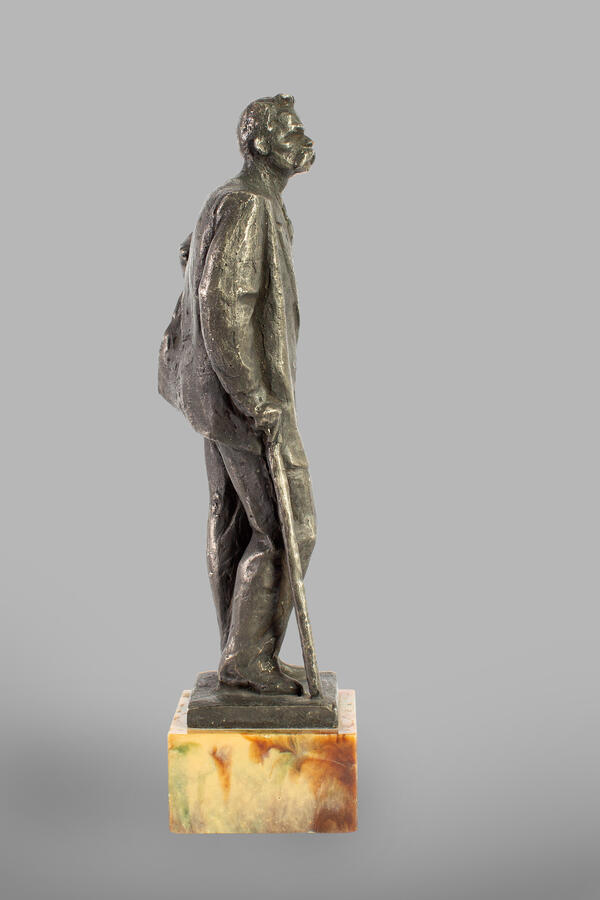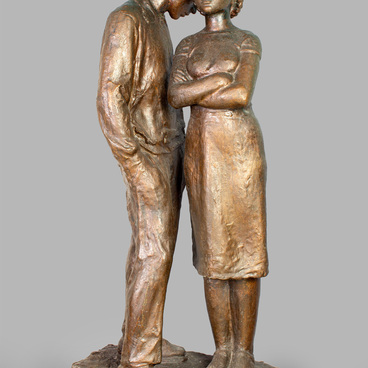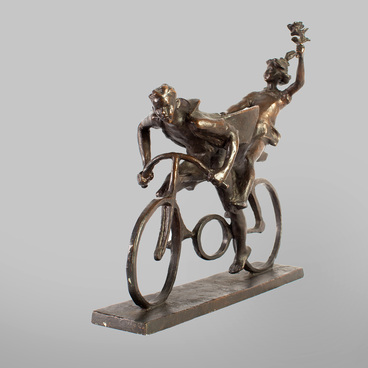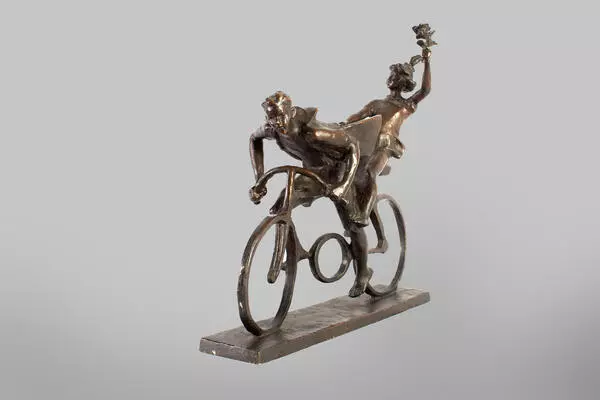The collection of the Tambov Regional Art Gallery contains a number of portraits of Russian and Soviet writers by the sculptor Viktor Chebotaryov.
Viktor Sergeyevich Chebotaryov was a famous Soviet sculptor whose career was closely connected with the Tambov region. He was born in 1915 in Saratov into the family of a railway worker from Tambov. After some time, the family moved to their homeland — the village of Pokrovo-Prigorodnoye, Tambov Region. In 1933, Viktor Chebotaryov graduated from the Tambov Pedagogical Art College.
After the Great Patriotic War ended in 1945, Chebotaryov became a student of the Russian Academy of Arts. As early as his first steps as a sculptor, he chose a range of themes for himself to explore: portraits of prominent people of science and art, compositions on the subjects of history and revolution, and monuments dedicated to the Great Patriotic War. The artist managed to create generalized historical images of the fighters of the Russian Civil War. Chebotaryov created indoor and monumental works: the monument to Alexander Popov in Kronstadt (1945), the sculptures “V.V. Mayakovsky” (1963), “L.N. Tolstoy” (1965), and “Portrait of F.M. Dostoevsky” (1980) (all presented in the Tambov Regional Art Gallery).
The gallery’s collection includes a sculptural portrait of the famous Russian writer Maxim Gorky. The sculptor rendered him as a thinker and fighter, wearing an open coat and leaning on a cane. The most expressive feature of the sculpture is the writer’s face, which adds a special emotional depth to the image.
Maxim Gorky (his real name was Alexey Maksimovich Peshkov) was born on March 28, 1868, in Nizhny Novgorod into the family of a cabinetmaker. The future writer was raised by his grandparents. Gorky’s grandfather Vasily Kashirin taught him to read and write using church books, while his grandmother Akulina Kashirina read fairy tales and poems to him. Later, the writer recalled,
Viktor Sergeyevich Chebotaryov was a famous Soviet sculptor whose career was closely connected with the Tambov region. He was born in 1915 in Saratov into the family of a railway worker from Tambov. After some time, the family moved to their homeland — the village of Pokrovo-Prigorodnoye, Tambov Region. In 1933, Viktor Chebotaryov graduated from the Tambov Pedagogical Art College.
After the Great Patriotic War ended in 1945, Chebotaryov became a student of the Russian Academy of Arts. As early as his first steps as a sculptor, he chose a range of themes for himself to explore: portraits of prominent people of science and art, compositions on the subjects of history and revolution, and monuments dedicated to the Great Patriotic War. The artist managed to create generalized historical images of the fighters of the Russian Civil War. Chebotaryov created indoor and monumental works: the monument to Alexander Popov in Kronstadt (1945), the sculptures “V.V. Mayakovsky” (1963), “L.N. Tolstoy” (1965), and “Portrait of F.M. Dostoevsky” (1980) (all presented in the Tambov Regional Art Gallery).
The gallery’s collection includes a sculptural portrait of the famous Russian writer Maxim Gorky. The sculptor rendered him as a thinker and fighter, wearing an open coat and leaning on a cane. The most expressive feature of the sculpture is the writer’s face, which adds a special emotional depth to the image.
Maxim Gorky (his real name was Alexey Maksimovich Peshkov) was born on March 28, 1868, in Nizhny Novgorod into the family of a cabinetmaker. The future writer was raised by his grandparents. Gorky’s grandfather Vasily Kashirin taught him to read and write using church books, while his grandmother Akulina Kashirina read fairy tales and poems to him. Later, the writer recalled,
